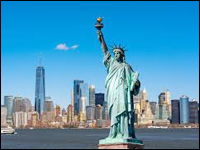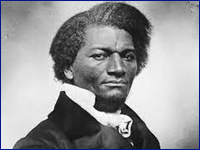 One hundred years ago this year, four young Indigenous evangelists first preached the gospel at Ikuntji (Haasts Bluff) 200 km west of Alice Springs.
One hundred years ago this year, four young Indigenous evangelists first preached the gospel at Ikuntji (Haasts Bluff) 200 km west of Alice Springs.
Ikuntji is the home of the Western Arrernte, Pintupi and Pitjantjatjara people.
The evangelists’ aim was to bring the message of forgiveness to a culture that had little understanding of it.
Local tradition dictated that if you committed an offence, you would have to suffer with payback and retribution which often included spearing and the spilling of blood – ‘Makarrata’.
When the evangelists explained the gospel story, however – in particular the account of the Roman Centurion who thrust his spear into Jesus’ side bringing forth water and blood – for Aboriginal people, this was significant. To them, spearing was about punishment. But here Jesus was being speared and saying, “Father, forgive them. There is no need for payback. You are forgiven.”
To commemorate that encounter, a huge 20-metre-tall cross has been constructed on Memory Mountain at Ikuntji.
Named The Forgiveness Cross, the cross was formally dedicated this year on the 100th anniversary of that memorable first visit.
“This cross will remain a symbol of forgiveness until the end of time”, said Ikuntji Elder Kieran Multa.
“People from every nation can now come together – every nation whether black or white, Chinese or Indian. The cross is the way to meaning, it is the way to forgiveness.”
In a report by Vision Media, years of fighting bureaucratic red tape, fundraising, engineering challenges and searing heat were all overcome to enable this beacon of hope to be realised in the heart of the nation.
This was a very different ‘statement from the heart’.
The Bible says, “The message of the cross is foolishness to those who are perishing, but to those who are being saved it is the power of God.”
Which brings me to the Referendum.
As we said at the start of the year in Remembering the Galatians Group, ‘closing the gap’ (between indigenous and non-indigenous people) and improving the lives of Aboriginal people is a no-brainer.
So why did so many people who support reconciliation, recognition and closing the gap not support the Voice?
Good question.
Well, as we warned back in March, the Voice turned out to be something very different to those things.
First and foremost was the fact that the debate presented not one, but two very different questions – do you support closing the gap, and do you support the Voice?
The problem was, only one of those questions was on the ballot paper.
Greatly admired individuals such as footballer Michael Long and wonderful organisations such as the Salvation Army believed the Voice would be a modest and safe proposal that would ensure Indigenous people ‘could be heard by government on matters related to them’. The Voice, they said, ‘offered hope and possibility for the future’. It would help close the gap.
But how accurate was their assessment?
First, the proposed Voice was to have been a stand-alone new chapter in our Constitution, sitting next to the three other great constitutional institutions: the Parliament (Chapter I), the Executive Government (Chapter II), the Judicature (Chapter III).
According to constitutional law professor Nicholas Aroney and constitutional lawyer Peter Congdon, the proposed new Section 129 establishing the Voice in the Constitution, “would accord the Voice a structural prominence and constitutional status comparable to those other three institutions”.
They argued that the proposed new chapter could fundamentally alter the division of powers between the commonwealth and the states.
“What if Voice representations concern health and education that are currently the domain of the states?
“What if the Voice wants a higher age of criminal responsibility for Indigenous people?
“Will this new head of commonwealth power give the commonwealth power to encroach in areas currently the responsibility of the states?”
No-one knows what the outer limits of this new power would have been. It would have been up to the High Court – not the parliament – to determine those parameters.
Key ‘Yes’ campaigner and architect of the Uluru Statement from the Heart, Professor Megan Davis, said the Voice ‘will have a lot of power’.
Indigenous Australians Minister Linda Burney said, “The Voice will be the vehicle to negotiate a national treaty with. There has to be a body to negotiate a treaty with, which is why the Voice is so important”.
And listen to this: Peter Jennings, Senior Fellow of the Australian Strategic Policy Institute (ASPI) said, “If the Yes case wins, then Beijing will want to establish relations with the Voice. Just as China courts the leaders of Pacific Island nations, state premiers, and even local councils, the Voice too will be the target of a PRC charm offensive.
“This is Beijing’s playbook.
“If the Voice is enacted, the Chinese will reach out to it within weeks. Then look out for that first funded trip to Beijing for Voice representatives.
“And more broadly, the diplomatic community will want to know how to engage with the Voice. Will that be done through DFAT’s First Nations ambassador who heads the Office of First Nations Engagement? Who will be responsible for shaping that policy agenda?”
The High Court would have to become heavily involved in all of these matters.
Yet we were told persistently that the Voice was merely ‘an advisory body’; a ‘modest and humble request’.
“The almost desperate insistence by the Yes case that the Voice was just an ‘advisory body’ was a claim designed to deceive”, said The Australian newspaper’s Editor-at-Large, Paul Kelly.
On Saturday, Prime Minister Anthony Albanese, together with Voice elites Noel Pearson, Ray Martin and others, and Voice radicals such as Marcia Langton and Thomas Mayo were totally vanquished.
To quote Shakespeare’s Hamlet, “They have been hoist by their own petard”.
Now most people think that a petard is some kind of flagpole or pikestaff, and you get hoisted up on it. But that’s not what a petard is at all. Petard is French for ‘bomb’, and you get ‘hoisted’, or ‘thrown in the air’, by your own bomb. The bomb blows up in your face. It sure did.
Despite huge political, social and financial resources aligned against it, the No campaign triumphed. As a result, Australia dodged a massive bullet.
In summary, ‘Vote No’ leader Jacinta Nampijinpa Price stated many times throughout the campaign that 80 per cent of Aboriginals enjoy the same standard of living as everyone else.
Think about that for a moment – 80 per cent of Indigenous people are no worse off than anyone else.
The challenge therefore is, how do we now join with people such as Michael Long and the Salvation Army and help the other 20 per cent?
Maybe we could start by visiting Memory Mountain.
 In 1946, Viktor Frankl, Holocaust survivor and renowned author of the book Man’s Search for Meaning, proposed that the Statue of Liberty on the east coast of America be complemented by a Statue of Responsibility on the country’s west coast. He was later joined in this endeavour by Stephen Covey, author of The 7 Habits of Highly Effective People. The dream was to ‘bookend’ the nation with two equally inspiring statues – one representing rights, the other responsibilities.
In 1946, Viktor Frankl, Holocaust survivor and renowned author of the book Man’s Search for Meaning, proposed that the Statue of Liberty on the east coast of America be complemented by a Statue of Responsibility on the country’s west coast. He was later joined in this endeavour by Stephen Covey, author of The 7 Habits of Highly Effective People. The dream was to ‘bookend’ the nation with two equally inspiring statues – one representing rights, the other responsibilities. It’s been said that any place you can’t leave is a prison. Australia’s present workplace regulation system is a prison, trapping a person in thousands of pages of regulations. When I ask why we lock people up like this, I am told “Oh it’s for their own good – we don’t want them to be exploited.”
It’s been said that any place you can’t leave is a prison. Australia’s present workplace regulation system is a prison, trapping a person in thousands of pages of regulations. When I ask why we lock people up like this, I am told “Oh it’s for their own good – we don’t want them to be exploited.” On the 14th of August, Prime Minister Anthony Albanese was interviewed by Neil Mitchell on Melbourne’s 3AW. Part of the interview went like this:
On the 14th of August, Prime Minister Anthony Albanese was interviewed by Neil Mitchell on Melbourne’s 3AW. Part of the interview went like this:
 From 1946 to 1948, my father served as a medic in the British Army in what was then known as British Mandate Palestine.
From 1946 to 1948, my father served as a medic in the British Army in what was then known as British Mandate Palestine. In his famous three-volume masterpiece, The Gulag Archipelago, Aleksandr Solzhenitsyn described the frozen wastelands of Siberia where political prisoners and dissidents the Soviet state considered dangerous were held (for their speech, not their actions). A gulag was a Soviet prison; an archipelago is a string of islands; hence the term ‘gulag archipelago’ – a string of camps, prisons, transit centres, secret police, informers, spies and interrogators across Siberia.
In his famous three-volume masterpiece, The Gulag Archipelago, Aleksandr Solzhenitsyn described the frozen wastelands of Siberia where political prisoners and dissidents the Soviet state considered dangerous were held (for their speech, not their actions). A gulag was a Soviet prison; an archipelago is a string of islands; hence the term ‘gulag archipelago’ – a string of camps, prisons, transit centres, secret police, informers, spies and interrogators across Siberia. It is two years since we launched our
It is two years since we launched our  A local police force was chasing a criminal who had fled into a large disused building. Their first thought was to surround the building, but they then realized that the building was so large and had so many doors and windows, they didn’t have enough police on the scene to cover all the exits. So instead, they surrounded the building next door which was smaller and had fewer exits.
A local police force was chasing a criminal who had fled into a large disused building. Their first thought was to surround the building, but they then realized that the building was so large and had so many doors and windows, they didn’t have enough police on the scene to cover all the exits. So instead, they surrounded the building next door which was smaller and had fewer exits. Frederick Douglass (1817–1895) is considered by many to be America’s greatest African American. Along with Booker T. Washington and Martin Luther King, these make up their top three.
Frederick Douglass (1817–1895) is considered by many to be America’s greatest African American. Along with Booker T. Washington and Martin Luther King, these make up their top three. In 1994, Uniting Church minister, the late Rev. Dr Max Champion formed an organisation called The Galatians Group. Max adopted the name from the biblical text, ‘You are all one in Christ Jesus’ (Galatians 3:28).
In 1994, Uniting Church minister, the late Rev. Dr Max Champion formed an organisation called The Galatians Group. Max adopted the name from the biblical text, ‘You are all one in Christ Jesus’ (Galatians 3:28). ‘A Centre-Right National Strategy’
‘A Centre-Right National Strategy’